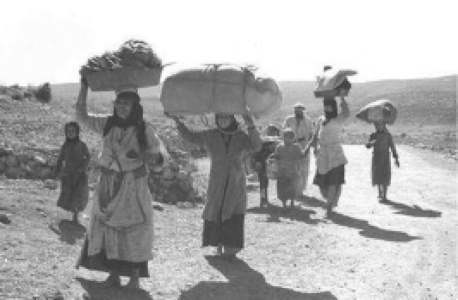Refugees and the Arab Charter on Human Rights

Refugees and the Arab Charter on Human Rights
The Arab Charter on Human Rights was adopted in 1994, but as of March 2004, no member of the Arab League has ratified it. Recent efforts to re-draft the Charter to bring it in line with international human rights law provide an opportunity to strengthen regional provisions for refugee rights.
On 24 March 2003, the Council of the League of Arab States instructed the Arab Standing Committee on Human Rights (Decision 6302/119, Part II) to "modernize the Arab Charter on Human Rights in light of comments and suggestions received from Arab States, with the participation of legal and human rights experts." The Standing Human Rights Committee of the Arab League met in June and October 2003 in special sessions and made some proposals for amendments, but did not finish the task of preparing a complete new draft to be proposed to the League for discussion and adoption.
On the basis of a Memorandum of Understanding signed by the League of Arab States and the office of the United Nations High Commissioner for Human Rights in April 2002, a Committee of Experts consisting of Arab experts selected from among members of United Nations bodies dealing with human rights was formed to assist the Arab League in re-drafting the Charter. The Committee of Experts met from 21-26 December 2003 and produced a proposed draft for the new Arab Charter. The Committee of Experts received submissions by international and regional NGOs, and relied on those when it produced its draft.
The Standing Human Rights Committee met again between 4 and 11 January 2004 and considered the proposal by the Committee of Experts, as well as the previous uncompleted draft of the Standing Committee itself in order to produce a new draft of the Arab Charter on Human Rights. The text is now referred to the Legal Committee of the Arab League for review in order for it to be presented for final discussion and adoption at the upcoming Summit of the League of the Arab States, initially scheduled for March 2004.
Strengthening provisions on refugees
It is uncertain whether the revised draft will be adopted by the upcoming Arab summit. Nevertheless, legal experts, NGOs and community initiatives should use the opportunity to lobby for strengthened regional provisions on refugee rights. Article 27(b) of the revised Charter states that “No one may be exiled from his country or prevented from returning thereto.” This provision, which is similar to Article 13(2) of the Universal Declaration of Human Rights, Article 12(4) of the International Covenant on Civil and Political Rights (ICCPR), and Article 5(d)(ii) of the International Convention on the Elimination of All Forms of Racial Discrimination (CERD) could be strengthened through the addition of commentary relating to the definition of “his country” and the specific circumstances of refugees and displaced persons.
General Comment 27 to Article 12(4) of the ICCPR, for example, concludes that the phrase “his own country” should be interpreted broadly. It includes nationals of a country who have been stripped of their nationality in violation of international law, individuals whose country of nationality has been incorporated in or transferred to another entity whose nationality is being denied them and stateless persons arbitrarily deprived of the right to acquire the nationality of the country of residence.
General Comment 22 to Article 5 of CERD, meanwhile, addresses the specific rights of refugees and displaced persons to return to their country of origin. It concludes that all refugees and displaced persons have the right freely to return to their homes of origin under conditions of safety and that states parties are obliged to ensure that the return of such refugees and displaced persons is voluntary and to observe the principle of non-refoulement and non-expulsion of refugees.
Mechanisms for redress
While the present draft of the Charter requires further revision to bring it into line with international human rights law, one of the positive changes to the revised draft is the introduction of a mechanism to monitor implementation of the Charter similar to international human rights instruments. Article 45 provides for the establishment of an “Arab Human Rights Committee” consisting of 7 members elected by secret ballot by states parties to the Charter. Committee members must be highly experienced and competent in the Committee’s field of work.
Similar to the committees that monitor implementation of international human rights instruments, states parties to the Arab Charter on Human Rights will be required to submit reports to the Arab Human Rights Committee concerning the measures they have taken to give effect to the rights and freedoms recognized in the Charter. After reviewing the reports the Committee will issue observations and recommendations. An additional provision to strengthen the reporting procedure would be the adoption of an optional protocol allowing for an individual complaints mechanism.
The revised Arab Charter on Human Rights raises the need for a review of other instruments relevant to the Arab world. This includes revisiting the Declaration on Refugees and Displaced Persons in the Arab World. Revisions to the Declaration should include language bringing the Declaration in line with international law on durable solutions for refugees, with particular attention to language on housing and property restitution. Provisions on international protection of refugees in the region should be consistent with the 1951 Convention Relating to the Status of Refugees and draw a clear link between protection and the search for durable solutions.
For further analysis on a broader range of human rights issues see, Amnesty International, Re-drafting the Arab Charter on Human Rights: Building for a Better Future. AI INDEX: MDE 01/002/2004, 11 March 2004. Also see, The Process of ‘Modernizing’ the Arab Charter on Human Rights: A Disquieting Regression – List of Recommendations.
